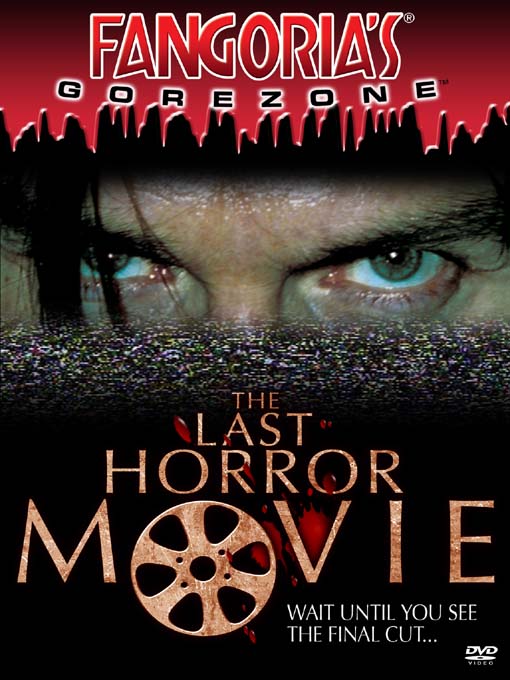
In past reviews I’ve mentioned the attempt to bring Cinema Verité style camera work to dramatic features. This technique seems particularly well suited for the horror genre, as mentioned in the review for [REC] (q.v.)
If you were raised on very steady, tripod shot films, you may be in the group that finds extensive handheld camerawork, tedious and nausea inducing; if on the other hand you like the style for the sense of immediacy it brings, The Last Horror Movie may be worth searching out.
Its several years old, so it deserves scads of credit for prefiguring the recent trend of documentary style horror films, but the last seven years have brought many changes, so it’s a tad dated already – videotape still predominates, and the local video stores were still a dominant force.
As you can probably guess from the title, The Last Horror Movie like 8mm, is metafiction. But it’s no slick lifeless 35mm Hollywood thriller about 8mm snuff films. This UK shot-on-video piece puts you in the action as you accompany a serial killer making the rounds. The killer is a wedding videographer who, with his assistant, travels around killing people and videotaping it.
Comparisons to Man Bites Dog are inevitable, but this film forgoes the black humor in favor of a more “real” and menacing feel. The killer, probably not accidentally, bears more than a passing resemblance to Ted Bundy. Good looking, charming, and able to go from zero to psychopath almost instantly. In that respect, it reminded me a little of American Psycho, but again, less slick.
Certainly not everyone’s cup of tea, but then no movie featuring a serial killer is.
Peeping Tom

If you like The Last Horror Movie, you might want to go back even further to seek out another rare treasure. Peeping Tom might actually have been the inspiration for The Last Horror Movie. This movie deals with a disturbed young photographer/filmmaker who kills models and actresses in London and captures it on film in a sort of 1960s update of Jack the Ripper.
This film was clearly ahead of it’s time. Made in the late 1950s and released in 1960, it resembles the 70s films of a decade and a half later more than anything else from the time. In fact at the time, its dispassionate, unflinching look at the psyche of a serial killer was so scandalous that it nearly ended director Michael Powell’s career. Powell was relegated to working on TV jobs and foreign films until cinema caught up with him 15 years later, when he was venerated and vindicated by the likes of Martin Scorsese and Francis Ford Coppola.
No comments:
Post a Comment